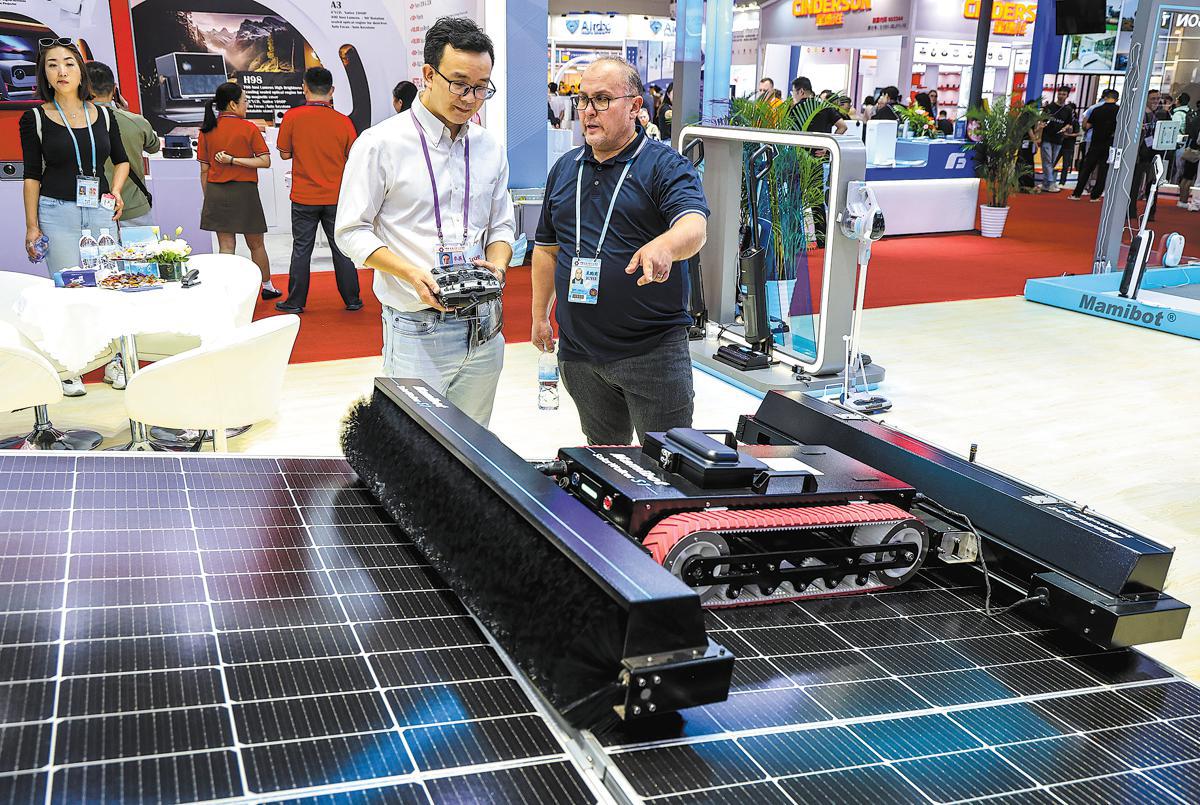Dual carbon goals spur green business into action
Nation's entrepreneurs answer call to reduce emissions and protect environment


After the official launch of China's national carbon trading market on 16 July 2021, the government released a steady stream of regulations and technical rules that clarified market expectations. Riding this policy tailwind, the company's turnover exceeded 300 million yuan in that year.
Following the inception of the national market, Zhu said that her company has extended its reach to all key provinces nationwide. The firm's workforce surged fivefold, growing from roughly 30 employees to over 200 during this period.
Outside the Chinese mainland, the company has proactively broadened its footprint through subsidiaries in strategic markets such as Hong Kong, and internationally in Mongolia, Singapore, Nepal and Timor-Leste, while deepening project cooperation with the Solomon Islands, Laos and Madagascar.
"Our company has expanded at a rapid pace. Since the launch of the national market, we have consistently experienced steady growth," she said.
Fang Kunli, an entrepreneur specializing in manufacturing with recycled materials, said her company has greatly benefited from the increased public awareness driven by the dual carbon goals.
Previously employed as an elevator technician, Fang began studying English and commerce at the age of 27, eventually joining a foreign trade company. In 2008, she discovered by chance that recycled materials could be used to make bags.
Motivated by a deep interest, she founded Free Markets Eco Friendly Products Manufacturing in Shantou, Guangdong province, focusing on creating products from recycled materials.
"Today, we have developed 500 types of recycled materials across 12 categories," she said. "For example, we create notebooks, hats and bags from wine corks."
Other materials they recycle include coffee grounds, used tires, windshields and paper, which are turned into products such as bags, pouches and clothes. Any waste can be transformed into something valuable, Fang said.
Before 2020, the company focused solely on exports. "We began exploring the domestic market after the dual carbon goals were introduced, and within the first year, domestic sales accounted for 30 percent of our business," she said.
The dual carbon goals significantly enhanced the visibility of Fang's company, which she described as a "turning point" for her business. This heightened awareness allowed her to promote products made from recycled materials on Chinese e-commerce platforms.
She actively shares her experience at environmental protection forums and seminars. "I am driven by the responsibility to protect the environment, and I hope to inspire more people to join this cause through the exposure and promotion of our eco-friendly products," she said.
























